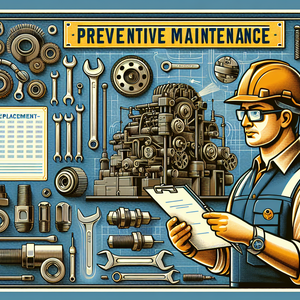The Hidden Skills That Make a Great Consultant

Emotional intelligence (EI) encompasses the ability to recognize, understand, and manage one’s own emotions, as well as the emotions of others. In the consulting field, where building strong relationships is paramount, EI serves as a key differentiator. A consultant with high emotional intelligence can adeptly navigate the complexities of client interactions, fostering trust and creating an atmosphere conducive to collaboration. For instance, imagine a consultant working with a hesitant team facing a significant organizational change. Through emotional intelligence, the consultant can identify the team members' underlying fears—perhaps a fear of job security or discomfort with new technologies. By addressing these concerns empathetically, the consultant can tailor their communication and strategy, easing the team into the transition. This approach not only strengthens client relationships but also leads to more successful project outcomes, as team members feel supported and understood.
Active Listening: Beyond Hearing Words
Active listening is a skill that transcends the act of simply hearing spoken words; it involves engaging with the speaker, comprehending their message, and responding thoughtfully. In a consulting context, effective listening can uncover critical insights that may not be immediately apparent. Consider a stakeholder meeting where a consultant is tasked with gathering input on a new strategic initiative. By practicing active listening, the consultant can pick up on subtle cues—such as hesitations or shifts in tone—that might indicate deeper concerns or priorities. For example, a stakeholder may express enthusiasm for a proposed plan but may also display body language that suggests skepticism. By acknowledging these signals and asking open-ended questions, the consultant can delve deeper into the stakeholder’s perspective, ensuring that the final recommendations align closely with the client's needs and expectations.
Adaptability: Thriving in Change
The consulting landscape is inherently dynamic, marked by fluctuating market conditions and evolving client needs. As such, adaptability is a crucial skill that enables consultants to pivot their strategies and approaches as necessary. Consultants who embrace change can respond effectively to unexpected challenges, ensuring that they remain valuable assets to their clients. Consider a scenario where a consultant is engaged in a project that undergoes a sudden shift in scope due to new regulatory requirements. An adaptable consultant can quickly reassess the situation, realign project goals, and mobilize resources to meet the new demands. This flexibility not only keeps the project on track but also reflects a proactive mindset, demonstrating resilience and the ability to think on one’s feet—qualities that clients highly value.
Developing These Skills
To cultivate these hidden but essential skills, consultants can engage in various practices: 1. Emotional Intelligence Training: Participating in workshops or seminars focused on emotional intelligence can provide consultants with the tools needed to enhance their interpersonal skills. Mindfulness practices and self-reflection can also help individuals recognize their emotional triggers and responses, leading to better emotional regulation. 2. Active Listening Exercises: Engaging in role-playing scenarios can help consultants practice their active listening skills. By summarizing and responding to client concerns during these exercises, consultants can refine their ability to capture the essence of conversations. Additionally, seeking feedback from peers regarding communication styles can provide valuable insights for improvement. 3. Embracing Change: Workshops that emphasize change management can equip consultants with strategies to handle transitions effectively. Exploring diverse experiences—such as working across different industries or taking on varied projects—can further enhance a consultant's adaptability and resilience.
In the competitive landscape of consulting, possessing technical expertise is necessary but insufficient for long-term success. Emotional intelligence, active listening, and adaptability are crucial hidden skills that distinguish exceptional consultants from their peers. By actively developing these abilities, consultants can improve their client relationships, drive better project outcomes, and adeptly navigate the challenges of a constantly evolving environment. Investing in these skills not only fosters personal and professional growth but also contributes significantly to the success of clients and the overall consulting profession. As the industry continues to evolve, those who master these hidden skills will undoubtedly stand out as leaders and innovators in their field.
Management Consultant
McKinsey & Company, Boston Consulting Group, Deloitte
Core Responsibilities
Analyze client business processes and identify areas for improvement.
Develop strategic recommendations and actionable plans to enhance efficiency and effectiveness.
Facilitate workshops with stakeholders to gather insights and foster collaboration.
Required Skills
Strong analytical and problem-solving abilities, with proficiency in data analysis tools.
Excellent communication skills, both verbal and written, to effectively convey complex ideas.
Experience in project management methodologies such as Agile or Waterfall.
Change Management Consultant
Accenture, PwC, Capgemini
Core Responsibilities
Design and implement change management strategies to support organizational transitions.
Conduct stakeholder assessments to gauge readiness for change and identify potential resistance.
Develop training materials and conduct workshops to equip employees with necessary skills.
Required Skills
Expertise in change management frameworks like ADKAR or Kotter’s 8-Step Process.
Strong emotional intelligence to manage team dynamics during transitions.
Experience in conducting impact assessments and measuring change effectiveness.
Organizational Development Consultant
Korn Ferry, Hay Group, Mercer
Core Responsibilities
Assess organizational structures and culture to identify areas for development and growth.
Facilitate team-building activities and training sessions to enhance collaboration and performance.
Provide guidance on leadership development and succession planning initiatives.
Required Skills
Knowledge of organizational psychology and behavior principles.
Strong interpersonal skills to engage with diverse teams and stakeholders.
Experience in designing and implementing employee engagement surveys.
Business Analyst
IBM, Oracle, SAP
Core Responsibilities
Gather and document business requirements through stakeholder interviews and workshops.
Analyze data trends to provide insights that guide strategic decision-making.
Collaborate with cross-functional teams to ensure successful implementation of solutions.
Required Skills
Proficiency in data visualization tools such as Tableau or Power BI.
Strong critical thinking skills to assess business processes and recommend improvements.
Familiarity with Agile methodologies and tools like Jira or Trello.
Strategy Consultant
Bain & Company, A.T. Kearney, Roland Berger
Core Responsibilities
Conduct market research and competitive analysis to inform strategic planning.
Develop long-term growth strategies and business models for clients.
Present findings and recommendations to senior leadership teams.
Required Skills
Strong quantitative skills, with proficiency in financial modeling and forecasting.
Excellent presentation skills to convey complex information clearly and persuasively.
Experience with consulting frameworks such as SWOT analysis or Porter’s Five Forces.


